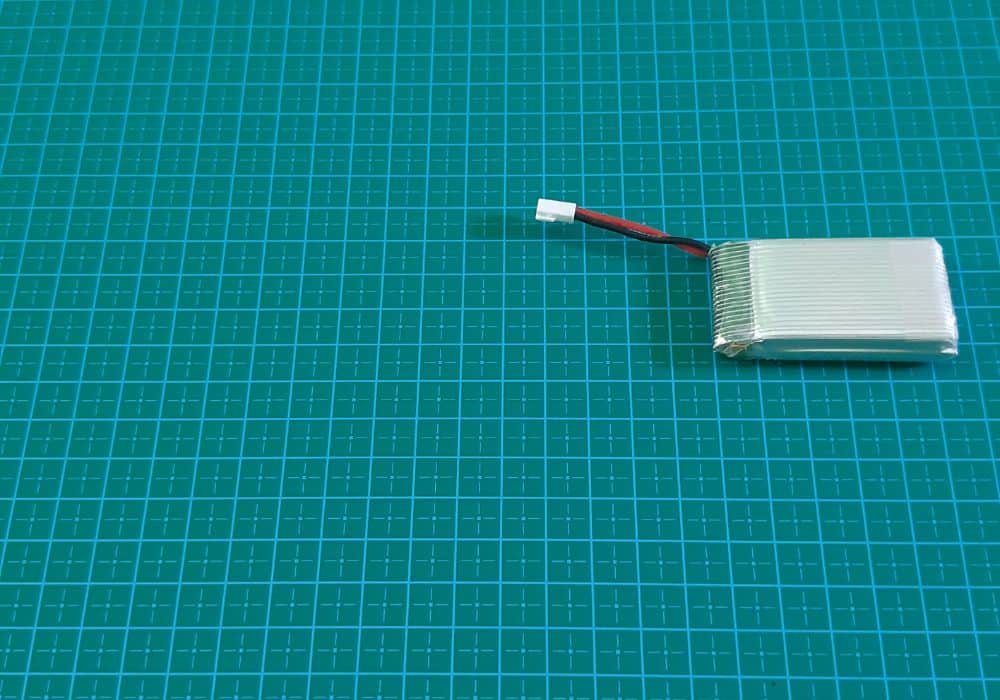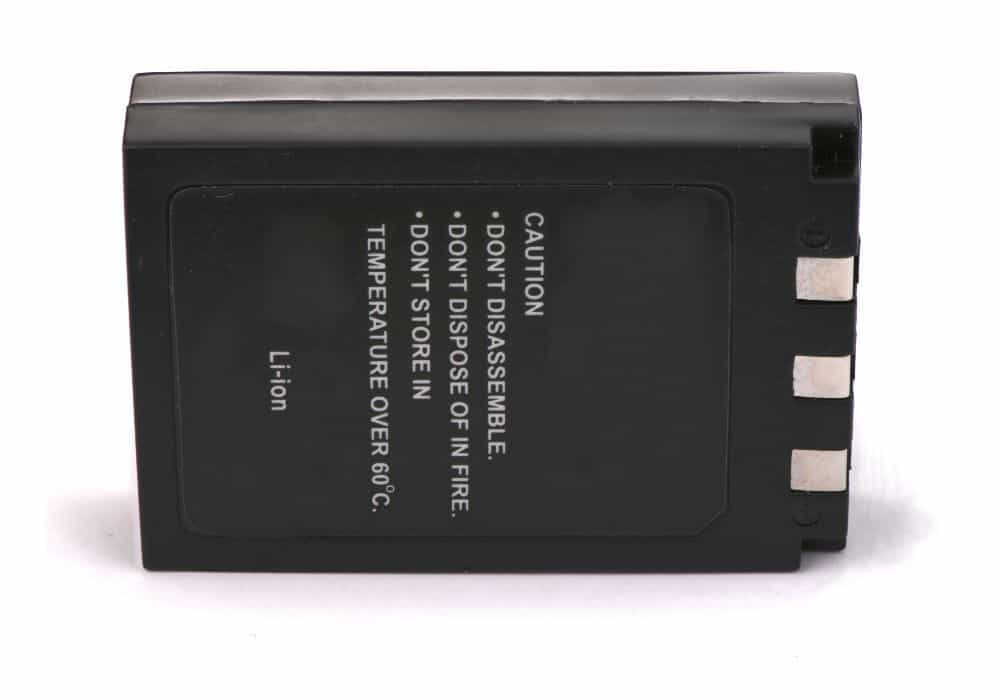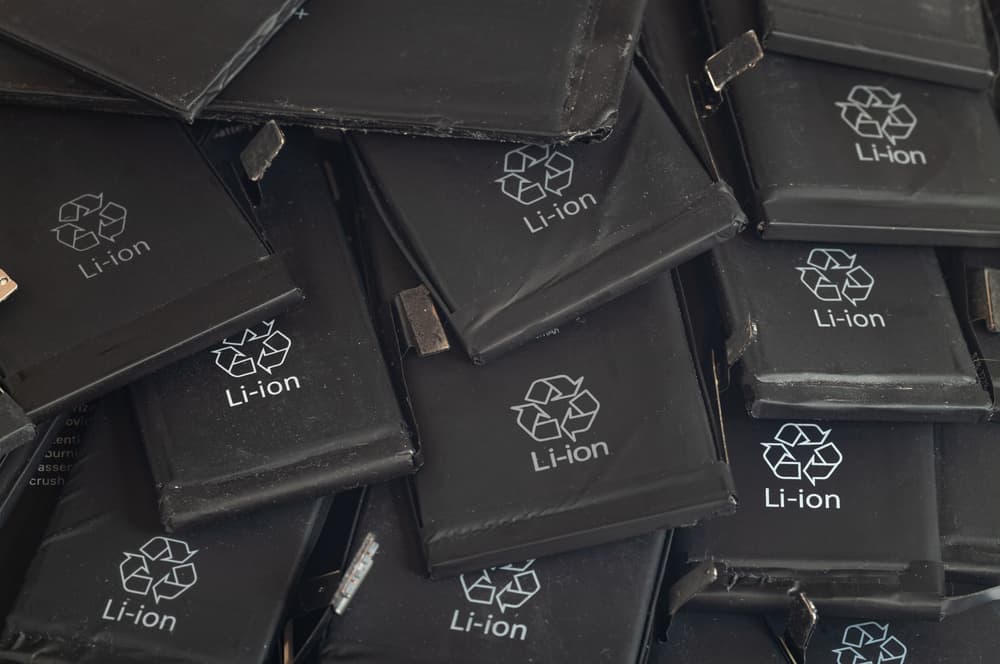If you are well-versed in batteries, you will know there are two types used in gadgets. Choosing between a li-polymer and a li-ion battery can be challenging, especially if you already know their strengths and weaknesses.
They have some similarities, but their differences make each one unique. We usually believe that the bigger a battery is, the stronger it should be. Bigger and more expensive batteries should last longer, right? But that is not always the case because there are different factors to consider.
So, which is the better battery? What differences make one superior to the other? This article explains what each battery is, the differences, and where the batteries’ strengths lie.
Table of Contents
What Is a Li-Polymer Battery?

Before deciding on the better battery for your gadget, you must understand each battery and how it functions. A li-polymer battery, short for lithium polymer battery, is a type that uses polymer electrolytes to run instead of liquid polymer. This battery type is highly efficient and is popular in modern gadgets.
Manufacturers like li-polymer batteries because they are versatile, safe to use, and fit for different devices. They have the added advantage of being lightweight, so they do not add to the devices’ weight.
Pros of Li-Polymer Batteries
Let’s discuss some of the pros or benefits of using lipo batteries and why they may be ideal for you.
1. Versatile
This type of battery is popular with manufacturers because of its versatility. Manufacturers find that they can change the shape and size of the batteries. In other words, the batteries are highly customizable to fit different purposes and designs.
2. Slim
If you have ever wondered about the slimness of the batteries in your device, you may be looking at li-polymer batteries. One of their advantages of that they are very slim, sometimes only 1 mm thick or lower. Their slimness makes them highly compatible with portable gadgets, which you may already have in yours.
Note that the thinness of the batteries does not remove from their capacity. Li-polymer slim batteries have high capacities compared to other battery types. They typically last longer and provide more power than their counterparts.
3. Slow Discharge
The typical battery discharges itself when it is not in use. There is not much to do about this battery characteristic, although many manufacturers try to reduce the self-discharge rates for their products.
Li-polymer batteries are no different, but they have a low self-discharge rate is quite low. In other words, they retain most of their charge even when not in use. This characteristic takes them to the top of the list of preferred batteries for many devices.
4. Lightweight
Heavy devices are a burden, especially if you have to carry them around. One of the contributing factors to the weight of any handheld device is the accompanying battery, whether removable or otherwise. For many batteries, their weight is an issue, and manufacturers do not favor them.
However, li-polymer batteries are not only slim but lightweight. They fit into many devices and make them extremely portable. We believe the absence of liquid polymer contributes to its weight, so you will find it in many modern electronic devices.
5. Safe
Batteries can explode under extreme conditions. And if a battery explodes, there is a risk of injury from battery acid. Fortunately, li-polymer batteries are safe for use because they hardly ever explode due to the aluminum packaging. This packaging ensures battery safety and prevents sudden explosions in extreme circumstances.
Cons of a Li-Polymer Battery
Lipos typically have a short life span, making them unsuitable for specific devices. It also does not hold a high charge because of its low energy density. In addition, a li-polymer battery is more expensive than other types.
What Is a Li-Ion Battery?

A Li-ion battery, short for lithium-ion battery, is a rechargeable type that uses a liquid, gel-like electrolyte to function. It is the removable battery inside your smartphone. It works when the lithium-ions, which are positively charged, are carried by the electrolytes from the anode to the cathode and from the cathode back to the anode.
This battery type is durable, making it last for a long time. It has been used for many years and is the preferred choice for many devices and electronic vehicles. It has excellent energy density, does not cost much to manufacture, and is portable.
Pros of Li-Ion Batteries
As with the li-polymer battery type, there are several advantages of using a Li-ion battery. We discuss some of them below.
1. Voltage Balance
One of the best parts of using a li-ion battery is how well it balances voltage. This means that the battery is excellent at maintaining a constant voltage supply if there is a power surge or spike. The same applies if there is a sudden spike in usage or load. It contributes to keeping your phone from prematurely burning out.
2. Care
You do not have to pay much attention to a li-ion battery as it practically takes care of itself. However, charging it when low is crucial. Ensure you do not use it when extremely low to avoid damaging it. Also, do not overcharge it, as that can cause premature damage.
3. Density
The reason li-ion batteries are popular is that they have a high energy density and power storage capacity. In other words, a Li-ion battery can store three times more charge than other battery types, including li-polymer batteries.
Their capacity does not impact their size; they remain portable despite their power storage and fast charging capacity. Consequently, they are efficient and compatible with many devices, whether or not they are handheld.
4. Cost
As mentioned, Li-ion batteries have a cheap manufacturing cost, which makes them affordable. That is why you find them in many phones, including high-end ones. You can attribute their cost to their availability, which may be because they have been around for a long time.
Cons of a Li-Ion Battery
This type of battery is fragile because of a lack of protective technology. It also loses its efficiency the longer you use it, resulting in a need for a new one. Additionally, the battery can become a fire hazard the longer you use it, especially if the temperature is high.
Li-Polymer vs. Li-Ion Batteries

By reading their respective advantages, you can tell a few differences between a li-polymer and a li-ion battery. However, that is not all there is to differentiate one from the other. If you have difficulty choosing the right battery for your device, here are some key differences to help you make an informed decision.
1. Weight
Li-ion batteries are typically heavier than li-polymer batteries. You will find that li-po batteries are slimmer or thinner and fit into flatter spaces than their sister batteries. This unique design also means that li-polymer batteries are less likely to leak than heavier and thicker li-ion batteries.
Additionally, the weight of a li-polymer battery makes it more portable than the li-ion option. You can easily carry devices with li-polymer batteries and not feel the weight. It also does not affect the device in the long run.
2. Density
Lithium-ion batteries have better density and high power capacity than lithium-polymer batteries. Although a li-po battery has a good power capacity and can withstand high usage, a li-ion battery performs better because of its capacity for prolonged and robust usage.
3. Suitability
Each battery has its unique role and suitability based on individual strengths and weaknesses. Li-ion batteries are popular with phones, although you will also find them in electric vehicles. However, li-poly batteries are fast becoming the preferred battery choice for phones due to their weight and ease of use.
Plus, they are less prone to leakages and fit into flatter spaces. Nevertheless, li-ion batteries last longer and can store more power for longer, which is what many mobile phone users prefer.
4. Price
We cannot discuss the key difference between these batteries without talking about the price of each one. Li-ion batteries are typically cheaper to manufacture and use than lithium-poly batteries.
However, there are unique circumstances where the former can also be as expensive as the latter. This is especially true if they are in high-end devices. Each battery can be expensive in general terms.
5. Versatility
Li-polymer batteries are more versatile than li-ion batteries because they fit many purposes. You can mold and reshape a li-polymer battery, but a li-ion battery is not so versatile. As a result, manufacturers prefer the former as it reduces the production cost if you can put it to different uses.
Bottom Line
Li-polymer and li-ion batteries have their upsides and downsides. While both are suitable for portable devices, a Li-ion battery is an excellent choice for long-lasting devices. On the other hand, a li-polymer battery is more efficient and is less likely to explode.
However, you will find more li-ion batteries used in many devices because of their accessibility and affordability. Nevertheless, li-polymer batteries are getting more popular by the day as users become aware of how efficient and reliable they are, although they are significantly more expensive than Li-ion batteries.
